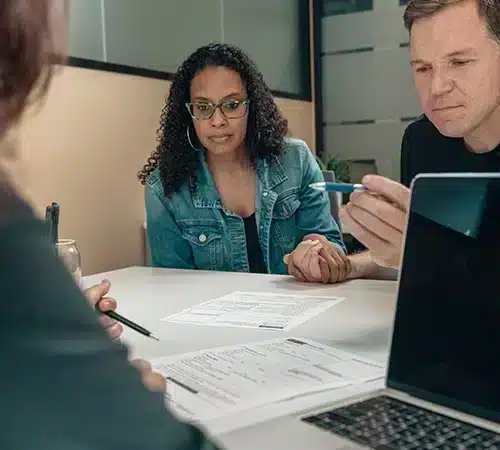Understand that buying or selling real estate is an exciting but complex process. One crucial step in this process is the real estate closing. It’s the final meeting where all parties involved in the transaction sign the necessary documents and complete the sale. Although each state (as well as local government such as counties and towns, may have their own requirements, we’ll discuss what you can generally expect during a real estate closing, what could go wrong, and the importance of having an attorney to represent you.
What to Expect During a Real Estate Closing
During a real estate closing, all parties involved will gather at a designated location, such as a law office or title company. The closing typically lasts one to two hours, and it includes the following steps:
-
Reviewing and signing documents: The buyer and seller will review and sign all the necessary documents, such as the purchase agreement, mortgage documents, and the deed.
-
Payment: The buyer will provide payment for the remaining balance of the purchase price, including any closing costs and fees.
-
Transfer of ownership: The seller will transfer ownership of the property to the buyer by signing the deed.
-
Recording of documents: The deed and other relevant documents will be recorded with the local government office to ensure the transfer of ownership is legally recognized.
-
Disbursement of funds: Any funds due to the seller, such as the sale proceeds, will be disbursed.
What Could Go Wrong During a Real Estate Closing?
Unfortunately, things don’t always go smoothly during a real estate closing. Here are a few examples of issues that could arise:
-
Title issues: If there are any liens or encumbrances on the property, it could delay or even cancel the closing.
-
Financing issues: If the buyer’s mortgage financing falls through or if there are issues with the appraisal, the closing could be delayed or canceled.
-
Unexpected repairs: If the buyer discovers unexpected repairs during the final walkthrough, it could delay the closing until those repairs are addressed.
How to Resolve Real Estate Closing Issues
If issues arise during the closing, it’s essential to have an experienced attorney to help you navigate them. For example:
-
Title issues: Your attorney can work with the title company to clear any liens or encumbrances on the property.
-
Financing issues: Your attorney can negotiate with the lender or explore alternative financing options.
-
Unexpected repairs: Your attorney can help you negotiate a resolution with the seller, such as a credit for repairs or an extension to address the issues.
The Importance of Having an Attorney Represent You
Having an attorney represent you during a real estate closing can provide many benefits. Your attorney can:
-
Review all documents before signing to ensure everything is accurate and in your best interest.
-
Ensure that your interests are protected throughout the transaction.
-
If any issues arise during the closing, your attorney can help you navigate them to ensure the transaction is completed as smoothly as possible.
The real estate closing is a crucial step in the buying or selling process. While it’s an exciting time, it’s essential to be prepared for any issues that may arise. By having an experienced attorney to represent you, you can rest assured that your interests are protected, and any issues can be resolved quickly and efficiently.
ABOUT THIS ARTICLE
The information provided by this article consists of educational materials and self-service tools and should not be considered legal advice. If you need legal advice, you should contact an attorney to represent you.
AskMyCounsel.com, which is not a law firm, prepared this article and it offers access to educational materials and a network of experienced attorneys who are ready to provide advice on a wide range of civil matters such as family law, estate planning, real estate, business and civil litigation, personal injury, and more. The best part is that all attorneys in its network provide initial consultations completely free of charge. Simply click here to schedule a FREE consultation. Alternatively, if you’d like to learn more and see a listing of attorneys in its network before scheduling a consultation, you can visit 1800ADVISER.COM. Here, you can browse the biographies of individual attorneys, read reviews and testimonials, and choose the attorney that best suits your needs. For additional information, see its Privacy Policy and Terms of Use, Legal Notice and Disclaimers.






